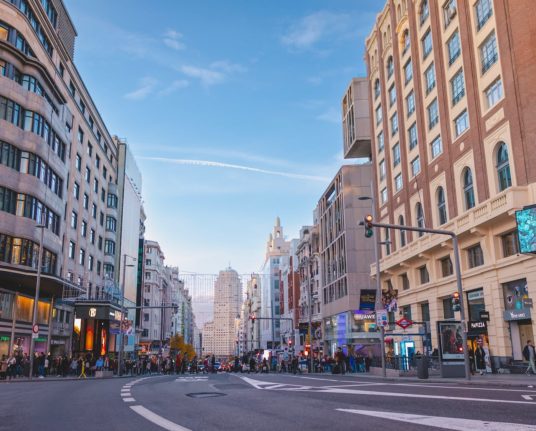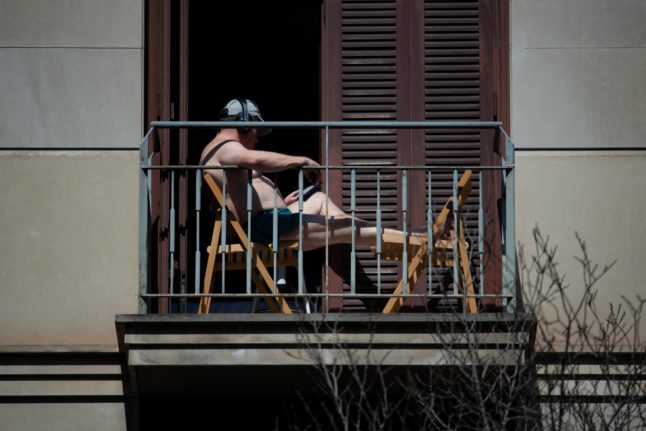L3 Metro line
The long-awaited project to expand Metro Line 3 between Villaverde Alto and El Casar (in Getafe) is scheduled to be wrapped up in March and will be opened sometime in 2024, though the Ministry of Housing, Transport and Infrastructure have not put a concrete date on when it will be operational.
Construction work to further expand the Metro across the city will also be undertaken throughout 2024. Line 11 will see work on a tunnel between Plaza Ellíptica and Conde de Casal, and the central section of the line is expected to be between Valdebebas in the north down to Cuatro Vientos in the south.
On the suburban lines, work on Metro Line 5 is also expected to begin in early-2024, allowing travel without the need for changes from Carabanchel to Barajas Airport.
Valdebebas bus station
The new Valdebebas interchange will also open, and will be operational during the first half of 2024. Valdebebas will be the travel infrastructure backbone of the new Ciudad de Justicia area, and once the judicial headquarters are open, it is estimated more than 30,000 people will pass through the area per day.
Low-emission zones
2024 also sees the new phase of the city’s low emissions zone (known as ZBEs in Spain) enter into force, which further limits the circulation of certain types of cars through the city centre.
READ ALSO: Driving in Spain: Which towns and cities have low-emission zones?
This mainly affects older, large vehicles, and off-road vehicles which are not registered in Madrid. Put simply, cars that do not have the environmental stickers identifying where they can and can’t go in the city centre. These are mainly diesel vehicles registered before 2006 or petrol vehicles registered before 2000 – cars classified as ‘A’ vehicles.
READ ALSO: GUIDE: How to get an emissions sticker for your car in Spain
If you have an ‘A’ vehicle and it is registered in Madrid, you can circulate through the city for another year, until 2025.
The number of cameras used to enforce the ZBE has also increased, with another 200 that will be in operation from January 14th.
The fines for entering ZBEs without a sticker, or in diesel vehicles registered before 2006 or petrol vehicles registered before 2000 not registered in Madrid, will be €200.
University fees
Madrid’s regional government will reduce the cost of enrolment fees paid by students from Spanish-speaking countries when enrolling in universities in the region, who will now be charged the same amount as any other EU or Spanish citizen.
Until now, students from Latin America had to pay double the normal price for enrolling (known as la matrícula).
Housing
The capital will also see thousands of new homes built in 2024.
Isabel Ayuso, President of Madrid, has repeatedly promised to expand the region’s public housing stock, and in 2024, the government expects to finish building 1,900 homes as part of its ‘Vive Plan’.
In addition, the Ministry of Housing, Transport and Infrastructure will finish 274 properties in Alcorcón in March. These houses are intended to be available at affordable prices, and will be sold or rented for up to 40 percent below the market value.
Ayuso has also announced that during the first half of 2024 another 568 homes will be finished in San Sebastián de los Reyes.
Schools
Schools and educational centres are also set to be expanded in Madrid.
As many as 17 new schools could be opened across the region, including in the municipalities of Madrid, Arroyomolinos, Getafe, Cobeña, Rivas-Vaciamadrid and Arganda del Rey. There will also be two new public schools in Tres Cantos and Colmenar Viejo, as well as a centre for special needs children in the capital.
Schools of the districts of Arganzuela, Hortaleza, Villaverde, Vicálvaro and Vallecas are also set to be finished in 2024.
Tax cuts
For the second consecutive year, the Madrid region will cut Personal Income Tax (known as IRPF). The rationale behind the measure is essentially to keep more money in people’s pockets: to prevent those Madrileños that have received promotions or salary increases from moving up a tax bracket and paying more.
The law that will allow the government to implement these tax cuts (which will take into account all the relevant brackets and deductions available) has yet to receive the final stamp approval from the Madrid Assembly, but with the Partido Popular’s absolute majority it is not anticipated the bill will encounter any problems in being passed.
READ ALSO: Why is Madrid traditionally so right wing?
At the municipal level, the Madrid city council has cut the Property Tax (IBI) rate from 0.456 percent to 0.442 percent, and reduced the Construction Tax (ICIO) rate in the city to 3.75 percent.
READ ALSO: What is Spain’s IBI tax and how do I pay it?
Taxi fares go up
New fares for the city’s taxis also entered into force from January 1st, with pricing rising. The biggest change covers journeys from Barajas airport to inside the M-30 motorway that separates inner Madrid from the outskirts and vice versa. The price has risen by 10 percent, from €30 to €33, though it remains a flat rate.
Up until 2024, the airport fare had remained unchanged for almost a decade.
READ ALSO: Everything that changes in Spain in 2024



 Please whitelist us to continue reading.
Please whitelist us to continue reading.
Member comments